Next year’s electoral calendar for Latin America already has at least four presidential votes and other votes to renew national parliaments and local authorities in several nations in the region marked in red.
The Voice of America highlights the electoral processes planned for 2025, with Ecuador being the first to embark on the election of a new head of state and the renewal of its legislative power and delegates to the Andean Parliament.
Ecuador
Ecuador will have general elections in 2025, which include the election of its president and vice president, members of the National Assembly and representatives to the Andean Parliament.
The first presidential round will be held on February 9. If necessary, the second round will be held on April 13. The winner’s inauguration will be in May. There will be a campaign for these elections from January 5, 2025.
Daniel Noboa, current president of Ecuador, aspires to be re-elected. His mandate will be only 18 months since his predecessor, Guillermo Lasso, called for early elections after dissolving parliament.
Bolivia
The Andean country plans to hold general elections next year, which include the position of president. The first round is set for August 17, while the second, if necessary, will be held on October 19.
Bolivian politics closes 2024 convulsed by the resistance of former President Evo Morales and his supporters to being arrested and prosecuted for alleged human trafficking. That refusal included road closures for several weeks.
Morales, who aspires to be a candidate in the upcoming elections, and the current president Luis Arce maintain a political dispute that has divided the ruling party, MAS.
Manfred Reyes Villa, mayor of Cochabamba and independent candidate, appears as one of the favorites in different opinion studies for the presidency.
Chili
Chile will hold general elections (presidency and parliament) on the third Sunday of November, in accordance with its political Constitution. On November 16, 2025, Chileans will vote for their favorites in parliament and the head of state.
If necessary, a second presidential round is scheduled for December 14. Also, political parties will be able to choose their candidates for the highest political office in the country in primary voting, which will take place on Sunday, June 29.
Gabriel Boric, Chilean president, a left-wing figure, but who has expressed criticism and differences with leaders considered authoritarian, such as the Nicaraguan Daniel Ortega and the Venezuelan Nicolás Maduro, will hand over power in March 2026.
Honduras
Honduras will have general elections in November 2025. Before that, on March 9, primary voting is scheduled for 3 parties to choose their respective presidential candidates: the ruling party Libertad y Refundación, of the leftist president Xiomara Castro, wife of former president Manuel Zelaya; National (opposition); and Liberal.
The Honduran ruling party has several candidates, such as Rixi Moncada, defense minister; the legislative vice president Rasel Tomé; deputies Jorge Calix and Maribel Espinoza; former candidate for office Luis Zelaya and former vice president Salvador Nasralla.
Among the opposition candidates are former mayor Nasry Asfura, deputy Jorge Zelaya; former first lady Ana García; and the politician and businessman Carlos Urbizo.
Argentina
Argentines will renew half of their legislative power – 127 seats – on October 26, 2025, in key elections for the government of right-wing president Javier Milei. A third of the Senate will also be renewed, that is, 24 senators will be elected.
Although the Argentine president still has almost 3 years left in his administration, his government agenda includes several reforms that must be approved by the legislature, including trade liberalization, new tax cuts and the deregulation of the national economy.
The libertarian ruler has insisted that these modifications are necessary to combat inflation and stabilize Argentina’s economic indicators.
His collaborators predict that Milei will do so well in those October votes that there will begin to be talk about the possibility of his re-election.
Venezuela
Venezuela, mired in an electoral political crisis, plans to renew hundreds of public positions by voting in 2025.
Although no electoral calendar has been set, Venezuelans will elect 23 governors, 335 mayors, the entire National Assembly and the ruler of the Capital District, as well as hundreds of councils and councils in the different states of the country.
These elections will occur amid serious doubts about whether the opposition to the government of Nicolás Maduro will participate in them. Anti-Chavismo presented evidence from most of the voting records of last July’s presidential elections to claim that they won, but the National Electoral Council awarded victory to the socialist president.
Maduro hopes to be sworn in for his third term on January 10, 2025, while his electoral opponent in July, former opposition diplomat Edmundo González Urrutia, says he will return from exile in Spain to assume the head of state on that date.
Other regional votes and political decisions
Several other Latin American nations are preparing to vote for their regional authorities, such as Uruguay, which will hold departmental and municipal elections on May 11.
Peru, for its part, will meet electoral dates in 2025 prior to the general votes in 2026. These steps in its electoral schedule include the formation of political alliances and the holding of primaries of almost 70 parties for the presidency and Congress.
Colombia will elect at least 13 local leaders next year, a figure that could increase to 18 pending judicial processes in another 5 municipalities.
Colombian legislation provides that governors, mayors, ministers, directors of administrative departments and Vice President Francia Márquez must resign before May 30, 2025 if they wish to aspire to the presidency in 2026.
Connect with the Voice of America! Subscribe to our channels YouTube, WhatsApp and to newsletter. Turn on notifications and follow us on Facebook, x and instagram.












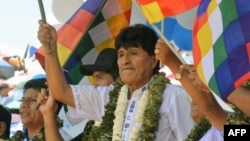
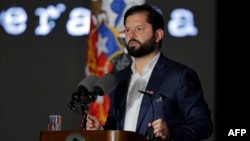
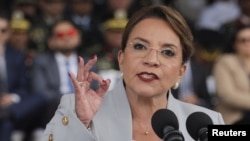
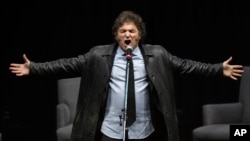
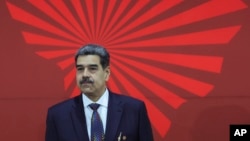



Add Comment